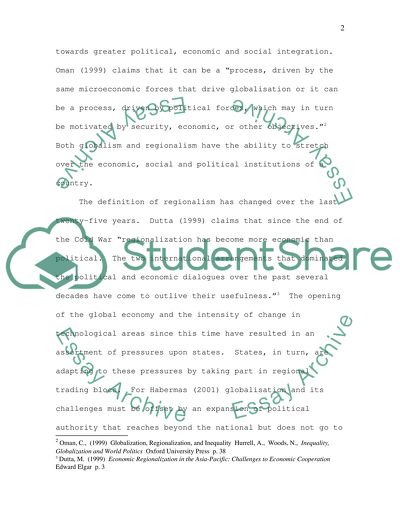Cite this document
(“Regionalism Essay Example | Topics and Well Written Essays - 1750 words”, n.d.)
Retrieved from https://studentshare.org/politics/1502294-regionalism
Retrieved from https://studentshare.org/politics/1502294-regionalism
(Regionalism Essay Example | Topics and Well Written Essays - 1750 Words)
https://studentshare.org/politics/1502294-regionalism.
https://studentshare.org/politics/1502294-regionalism.
“Regionalism Essay Example | Topics and Well Written Essays - 1750 Words”, n.d. https://studentshare.org/politics/1502294-regionalism.


